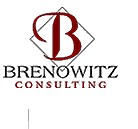


|
Issue
# 3 - Executive Coaching
In this issue you will find: 1. An introduction to the topic of Executive Coaching 2. A review of "Four Essential Ways that Coaching Can Help Executives" by Witherspoon and White 3. Pointers to additional information on this topic ______________________________________________________ WHAT IS COACHING...AND WHY WOULD YOU WANT A COACH? Coaching is not new. Athletes have always had coaches. They are common among musicians, and students who want to excel in a particular subject have tutors. More recently, people have been using personal trainers to help them stay focused, improve discipline, and become more fit. And at work, where we are increasingly expected to do more with less only faster, many businesspeople--executives, managers, and individual contributors--have discovered the value of having a coach. Executive Coaching is an ongoing, one-on-one relationship that helps you:
In our experience, people are motivated to seek coaching when they are:
Typically, a good coach uses a process with several steps; 1. Contracting–In an initial conversation, the client and coach gain a shared understanding of the client's needs, opportunities, goals, and outcomes; agree on what the client can expect from the coach and vice versa; create an explicit agreement about confidentiality and how data will be used; and determine logistics such as frequency of meetings, location, and other terms of engagement. 2. Assessment–It is important to have independent and comprehensive information about how stakeholders view the client. This information is usually gathered in a combination of ways including an instrumented 360 profile, interviews of stakeholders by the coach, and real-time observation. It is frequently helpful for the coach to observe key meetings which enable him/her better to understand the organization culture and environment in which the client works. 3. Planning–After meeting together several times and reviewing the assessment data, specific goals and desired outcomes are developed along with a plan for how the work will proceed. 4. Ongoing work–Coaching is most effective when meetings occur regularly and last long enough for in-depth exploration. The focus is on the client's stated goals and real-life situations. The client is drawn far enough outside his/her comfort zone to investigate fully those situations in which he/she must be successful and to develop new behavioral and strategic alternatives. In subsequent meetings, the results of experiments with new options are evaluated and refined. The coaching process aims for the client to develop skills in identifying desired outcomes, assessing influence targets, and creating behavioral strategies. 5. Evaluation–Periodically, the progress and results of the coaching process are reviewed, celebrated, and if necessary, the plan is modified. We have found that those who benefit the most from working with a coach:
It is important to select your coach carefully. Good coaching relationships are based on mutual trust, a willingness on the part of both client and coach to be honest and straightforward and to lean into difficult issues, the desire of the client to engage in a development process, and the competence of the coach. We encourage you to seek referrals from colleagues who have had successful coaching relationships and/or your HR or OD professionals. Ask for and check the references of prospective coaches, paying attention to their backgrounds, experience, and credentials. The person with whom you work on your professional development and career should qualified to work with individual, organization, and systems dynamics. To help you get a first-hand view of what coaching is like, we invited a couple of our coaching clients to talk about their experiences in their own words. Here is one person's view: "I have moved quickly through my career based on my technical merits...and four years ago joined a fast growing public firm. As the Company grew, the requirements of my job focused more on the managerial and interpersonal aspects and less on the technical. I attended a few management development courses, but they were too general and not very effective. I paid no attention to the interpersonal aspects of my job, and over time found myself increasingly in conflict situations with Executive Staff over small details. "Shortly after Tracy and I started working together, I took charge of a global ERP implementation project, a role that is 90% relationship driven and only 10% technical. By showing me how to study patterns of behavior and strategize different approaches that work best with different people, Tracy has helped me make the necessary changes in my approach to working with people. I have become more outcome-focused and less concerned with 'being right.' "During the five months I have been managing the ERP implementation, I have actively used learned skills to keep the project on track." And here is another's: "I sought a management coach when I began to realize that my leadership, while seemingly effective, could be much more so. This was causing a great deal of frustration on my part, especially since I tend to be a perfectionist! "I soon discovered that some of my barriers to being a more effective leader had less to do with my day-to-day professional activities than with my assumptions about and views toward others, both personally and professionally. My coach helped me to refocus in ways that vastly increased my level of self-awareness. She has also enabled me to be more clear about and better able to articulate the results and outcomes I want–from both others and myself. One benefit of this has been that those with whom I work are less likely to be surprised or feel blindsided after-the-fact. "Even though I knew when I started that there would probably be some work involved, I secretly hoped that I would find easy answers and get confirmation for my view of things and approach to management and leadership. I underestimated the degree of difficulty, but with lots of support and gentle nudging, she has ensured that I have maximized the return on this effort. The outcomes to date have been dramatic for me." ______________________________________________________ 2. "Four Essential Ways that Coaching can Help Executives" by Robert Witherspoon and Randall P. White (Center for Creative Leadership, 1997) The first use of the word "coach" in English occurred in the 1500s to refer to a kind of carriage. "Hence," say Witherspoon and White, " the root meaning of the verb 'to coach' is to convey a valued person from where he or she was to where he or she wants to be." Coaching is a process that helps executives learn, grow, and change. Although what coaching involves depends on the specific executive and situation, executive coaching falls into four categories:
1. Coaching for Skills COACHING FOR SKILLS is learning focused on a person's current task or project. This coaching is usually needed for the short term and the coaching goals tend to be clear and specific. Settings well-suited for this coaching role are to support:
COACHING FOR PERFORMANCE is learning focused on a person's current job. Typically, the executive feels the need to function more effectively at work, or to address performance issues. For executives having difficulty, the challenge is to correct problem behaviors before they jeopardize productivity or derail a career. This type of coaching is usually seen as appropriate for the short or intermediate term although there may be less consensus within the organization about the need for performance coaching. And because this type of coaching can feel more threatening to some executives than skills coaching, it tends to involve more time. This coaching role is best used to:
COACHING FOR DEVELOPMENT is learning focused on a person's future job. Typically, the executive needs to prepare for a career move, often as part of succession planning discussions. Coaching for development tends to involve a deeper focus on executive development and personal growth. The coaching sessions here typically focus on development for a future job by helping an executive discover strengths and weaknesses, and to determine where growth is needed. Since an executive's agenda is often broad and evolving, COACHING FOR THE EXECUTIVE'S AGENDA tends to involve learning in the largest sense. Often the executive desires a confidant to offer insight, perspective, and constructive feedback on ideas and experiences. The format for this coaching is ongoing, and coaching sessions evolve in response to the executive's agenda. Frequently, this type of coaching is used to support change management by preparing an executive to successfully implement a change initiative, or to expand options when creative suggestions could improve the chances for sound decisions. The coach often acts as a sounding board and offers feedback and suggestions to enhance the executive's ideas. "Four Essential Ways That Coaching Can Help Executives" will be especially valuable to executives considering entering a coaching relationship and for HR professionals who are interested in bringing a coaching capability into their organization. _____________________________________________________ 3. Web-sites and Other Resources we've found about this topic include: The Hudson Institute of Santa Barbara <www.hudsoninstitute.com> The Hudson Institute offers a four-day program called Life Launch that is a very effective planning-for-the-rest-of-your-life experience. It could also be thought of as a jump-start for an on-going coaching relationship. They also offer a training and certification program for coaches. They have published a companion book: Hudson, F.M. and McLean, P.D. (1995). Life launch: A passionate guide to the rest of your life. Santa Barbara, CA: The Hudson Institute Press. An audiotape about introducing executive coaching into organizations is available from the American Society for Training and Development <www.astd.org>: LaMountain, D. (1986). Executive coaching: Cost-effective, one-on-one guided development strategies [Audiotape]. Alexandria, VA: American Society for Training and Development. "If you're not getting better, you're falling behind. To elevate your game, find the personal coach with the right strategy and style for you." Tristam, C. (1996, October/November). Wanna be a player? Get a coach! Fast Company, pp. 145-148. Available in the archive section @ <www.fastcompany.com> This article describes coaching as "the ultimate educational service for managers," and also suggests that coaching is not a good "try this at home, do it yourself" activity. Williams, M.J. (1996, October). Are you ready for an executive coach? Harvard Business Review. <www.hbsp.harvard.edu/hbsp/prod_detail.asp?> Product number U9610D For a succinct article that enumerates the benefits and outcomes that can be expected from effective coaching, see: Witherspoon, R. and White, R. (1996, March). Executive Coaching: What's in it for you? Training and Development, pp. 14-15.
|
||||||||
|
||||||||